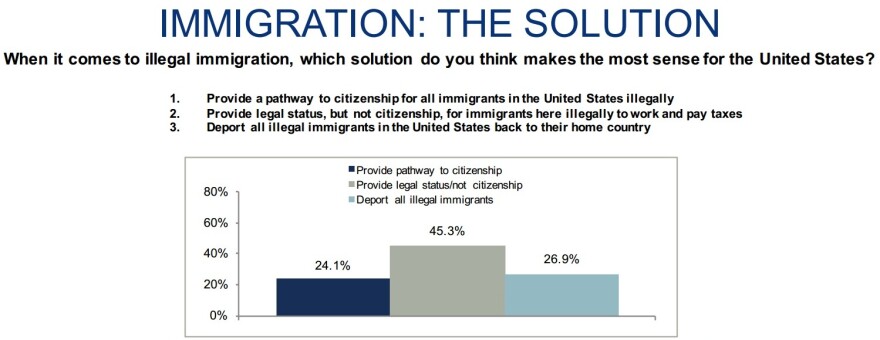Only a few of the 1,000 Idahoans who took a new public opinion poll saw immigration as a big priority for the state. We continue this week's look at some of the results of that poll released Monday by Boise State University.
There was a fairly even split on how people perceived immigration, with a little bit higher proportion viewing it positively. Respondents were asked if immigration helps Idaho more than it hurts the state, or the other way around. Not quite a majority, 47.8 percent said it helps, 40 percent said it hurts and more than 12 percent declined to answer or answered neither or don’t know.
Corey Cook, dean of Boise State’s new School of Public Service which revived the survey after a five-year hiatus, says how Idahoans perceive immigration fell into some predictable patterns.
“There was a clear difference of opinion by party,” Cook says. “There was a difference of opinion by what region of the state they live in. That reflects this somewhat polarized view of immigration in the state.”
Idaho Democrats see immigration more positively than Republicans. Residents of northern Idaho have a more negative view on immigration than those in southern part of the state. There's also a sharp difference based on age. The majority of respondents 44 and under saw immigration as helpful. Only about a third of those 55 and older think immigration has a positive impact on Idaho.
Those findings weren’t big surprises to Cook, but he was surprised by what respondents wanted to do about undocumented immigrants.
Cook says surveyors gave people three options; provide a path to citizenship for people in the country illegally, deport them all, or give them legal status so they can stay and work but not get citizenship.

About a quarter of respondents went for citizenship, about a quarter for deportation but nearly half favored legal status.
“So while immigration is certainly a polarizing issue in the country and in the state, there’s a pretty sizable block of folks across party, across region who said the most sensible solution is this sort of middle ground solution,” Cook says.
But in some national polls, that choice is not nearly as popular. In a Pew poll last summer, only about a quarter of people picked that option.
Find Adam Cotterell on Twitter @cotterelladam
Copyright 2016 Boise State Public Radio


